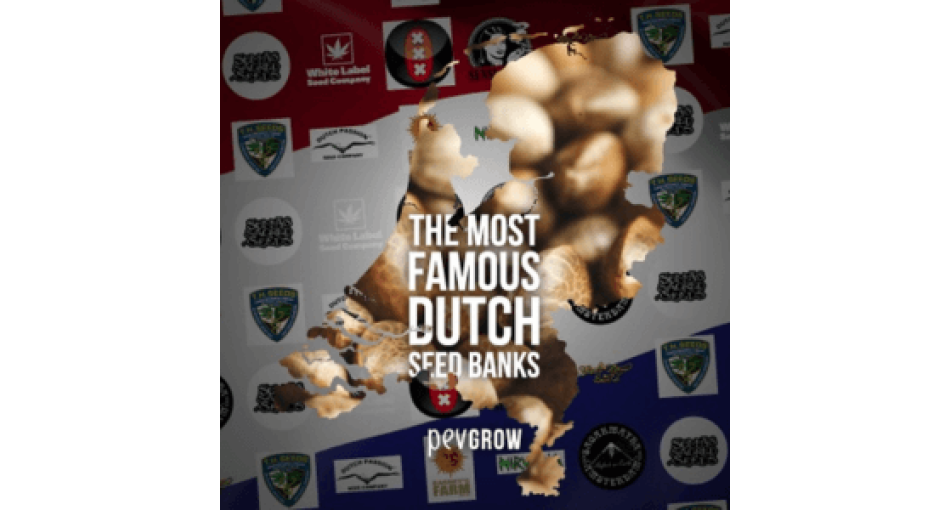
The History of Dutch Marijuana Seed Banks: From Smuggling to Legalization
Introduction
The Netherlands has played a pivotal role in the development of the global marijuana seed industry, transitioning from illegal smuggling to becoming recognized global leaders. Today, Dutch seed banks are renowned for their quality and innovation, but their history is filled with challenges and transformations. In this article, we explore how a small group of enthusiasts turned the Netherlands into the center of the global cannabis industry, overcoming numerous legal and social obstacles.
Early Days: The 1970s
In the 1970s, the Netherlands saw the emergence of the first cannabis enthusiasts inspired by the hippie culture and countercultural movements. At the time, marijuana was illegal, and its cultivation involved significant risks. One of the early pioneers was Nevil Schoenmakers, who founded the first seed bank called "The Seed Bank." He started by smuggling seeds from Afghanistan, Morocco, and other regions with a long history of cannabis cultivation.
Early Years: Smuggling and Innovation
Nevil Schoenmakers became a key figure in the history of Dutch seed banks. Starting with seed smuggling, he experimented with various strains, crossbreeding them and creating new hybrids, laying the foundation for future success. His "The Seed Bank" quickly became known across Europe and beyond, attracting the attention of other cannabis enthusiasts. Nevil was not the only one who contributed to the industry; figures like Ben Dronkers, founder of "Sensi Seeds," and Arjan Roskam of "Green House Seeds," also played significant roles.
Legalization and Industry Growth
In the 1980s, the Netherlands began moving towards cannabis legalization. The government decided to decriminalize its use and allow limited sale in "coffeeshops." This move provided a huge boost to the industry, allowing seed banks to operate more openly and legally. Companies such as "Sensi Seeds," "Dutch Passion," and "Green House Seeds" became leading players in the market, offering a wide range of high-quality seeds.
Innovation and Development
Dutch seed banks not only engaged in commercial cultivation but also actively researched cannabis properties. They introduced new cultivation technologies, conducted genetic research, and improved product quality. This led to the emergence of many famous strains, such as "White Widow," "Northern Lights," and "Skunk #1," which became industry benchmarks. Research also covered the medical aspects of cannabis use, contributing to its legalization for medical purposes in several countries.
Impact on the Global Market
Today, Dutch seed banks continue to play a crucial role in the global cannabis industry. Their products are exported worldwide, and their expertise and innovations inspire new producers. The Netherlands has become a sort of "Mecca" for cannabis enthusiasts, with many producers coming here to learn from the best. Dutch companies actively participate in international exhibitions and conferences, sharing their knowledge and experience.
Modern Challenges and Prospects
Despite significant achievements, Dutch seed banks face new challenges. Competition in the global market is increasing, with many countries developing their own cannabis cultivation and sales programs. Additionally, changes in legislation, such as stricter regulations and taxes, can impact the activities of seed banks. Nevertheless, innovation and high product quality remain key success factors for Dutch companies.
Conclusion
The history of Dutch marijuana seed banks is a story of courage, innovation, and the pursuit of freedom. Starting with smuggling and illegal experiments, they overcame numerous obstacles to create one of the most advanced industries in the world. Today, their achievements are recognized worldwide, and they continue to inspire new pioneers in the cannabis field. The Netherlands remains an important center of the global cannabis industry, continuing to make significant contributions to its development and innovation.
